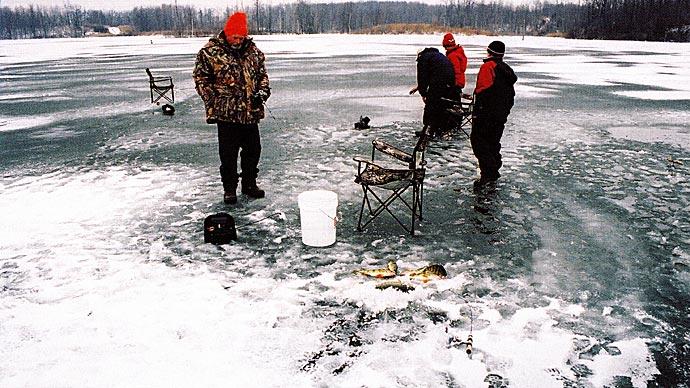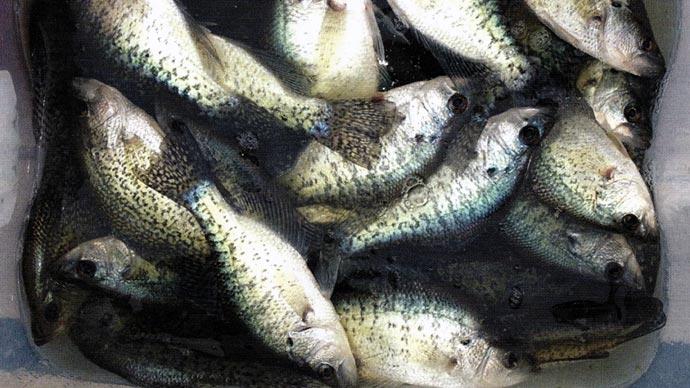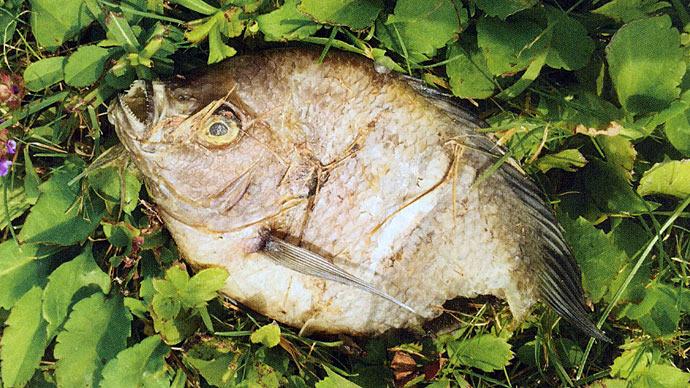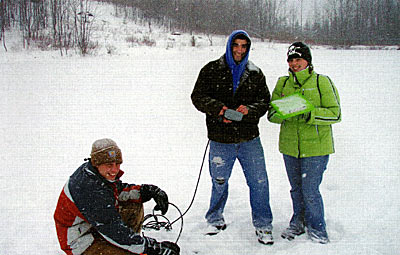
Some of the most cherished conversations I had with Dr. Dave Willis several years ago revolved around the difficulty of managing private ponds north of the Mason-Dixon Line. Dave was the first to truly teach me the underlying dilemma of winter-kill in northern waters, especially the prairie potholes of the Plains states. Those natural potholes have been there for eons, with ebbing and flowing water levels, and home to multitudes of different species of birds, mostly migratory ones.
Along with eons of runoff from natural prairie lands, and regular nutrient deposits from birds, the organic load in these potholes can be staggering. Some of these natural lakes are large enough to attract flocks of humans, but they're too big to effectively manage. These beautiful holes have mostly been left to their own devices, guided by this thing they call winter.
As Dave and I became closer friends, our conversations began to drill deeper into the concept of managing northern waters, especially manmade ponds and lakes. While it's easy to talk about sport fish management, what difference does it make if a pond is prone to winterkill? Up until recently, this premise is what kept people from managing their ponds for good fishing. Who wants to spend much money on an asset that will go bankrupt from time to time?
One of Dave's conundrums was teaching and mentoring students at South Dakota State University and not being able to show them opportunities for pond management in the local private sector. I'll always remember a question he asked me once. "Do you think you could make a living in the pond management business in the north?" I didn't hesitate. "No doubt, I could." He smiled and followed with, "How would you do it?" It was easy to see where he was going. Short growing season, compared to the south, and with legitimate risk of winterkill, what would I do?
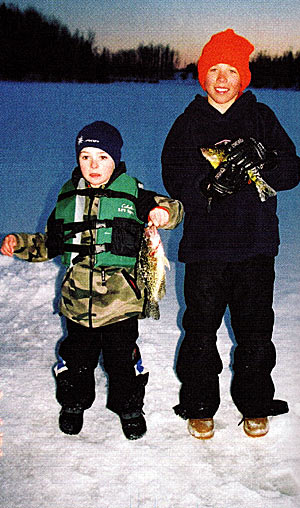
We brainstormed.
Several conclusions were drawn during these energetic, fun conversations. First, focus on the water. Water filled with nutrients grows green stuff. It will grow all types of plants, plankton, and microscopic algae. It's those plants that are the root of the problem that leads to fish kills in winter. There are two big things at play here. First, the plants photosynthesize in the presence of sunlight. Photosynthesis is plants taking up carbon dioxide and giving off life-giving oxygen. Without sun, plants do the opposite. Water gains oxygen two ways—photosynthesis and contact with the atmosphere. Ice blocks the sun, stopping both those processes. When plants die, they begin to decompose. Decomposing organic matter consumes oxygen. In winter, under ice, ponds get a left-right combination, and then are taken out by an upper cut to the oxygen. Match over by knock out.
As Dave and I talked, we started doing some math on how much oxygen it takes to keep fish alive, even if for just a few short, critical days, or weeks. Fisheries scientist have proven over time that most fish need three parts per million of dissolved oxygen to survive.
Before Dave died five years ago, we were in the beginning stages of developing a study about how to inject oxygen into pond water under ice and see if we could keep the levels up for a few days. A bottle of liquid oxygen would be used to add oxygen, and then watch the fish on a camera to see if they would come to it. Dave ran out of time before we could do that fun little project.
If you live up north, you want to keep your fish alive, not only because of the investment, but also because you probably intend to ice fish. What can you do to get your pond ready for ice fishing? Move the water, now. The more water moves, the higher the odds of composting organic matter deposited. Minimize nutrient input. If you have runoff from surrounding agricultural fields, leave a vegetated buffer zone at least fifty feet away from the shore. Those plants can help capture and sequester nutrients from runoff.
Monitor your risk factors. Those biggest risk factors are aquatic plants and nutrient buildup. If your pond is nutrient heavy, moving the water is the most important thing you can do. For northern ponds, clear water by summer's end is important. What you give up in fish production, you'll make up with mitigated risk of losing those fish during winter.
Keep your fishery well managed. It's better to end the summer a little bit understocked than overstocked. Harvest key size classes of fish. Eat them.
Can you feed your fish to speed up their growth rates? Sure, but feed the most efficient feed you can buy. Sure, it's expensive, but well, well worth the cost to offset the risks. Plus, great food creates healthier fish as they go into the most stressful part of the year.
Okay, so much for the fish.
How about what you can do for you—the angler?
If you didn't place some fish-congregating structure on the ice a few months ago, do that now. Steer clear of too much dense brush such as cedar, as it will add to the organic load in the pond that your water has to process. Use rocks, concrete blocks, PVC plastic, or any of the artificial structure in today's marketplace. Place this structure where you've caught fish before, especially during winter.
It's funny, this article mentions nothing about managing the fish. If you'll be creative about minimizing the organic load, and moving water to process the nutrient load over the spring and summer, you lessen the risk of winterkill. If plants are an underwater problem, get them out. Don't use herbicides as they only convert the nutrients to something else. Either drag out the plants physically, or see if your state allows grass carp to eat them. Where these fish are legal and properly used, converting plants to flesh is a great idea.
Focus on cleaning the water and minimizing the nutrient load, and you stand a better chance for long term success. Doing that now sets the stage for a happy winter and excellent ice fishing.
Reprinted with permission from Pond Boss Magazine

